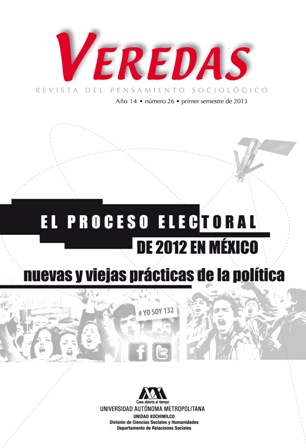De la primavera árabe a la primavera mexicana. Lo público, lo privado y lo virtual en la reconfiguración de lo político
Abstract
After 1989 it was created a kind of emptiness about the possibility of articulation of a critical discourse and the rise of social movements as an alternative to the neoliberal project. However, at the end of 2010 in Tunisia an apparently random fact led a critical response and wide democratizing demonstrations around the world. These movements emerged with basic and specific programs that claim that despite having differences between each country and each moment, they share a core of ethical principles: the redignificación behind the “outrage” against a political-economic project that has removed systematically minimum conditions of dignity and freedom that is required for a minimal citizenship status. On Friday May 11th the Spring arrived to Mexico. The protest movement #YoSoy132 emerged as opposition to the Institutional Revolutionary Party candidate and as an expression of solidarity with the “131” students of Ibero-American University who began the protest. In this context, I discuss some aspects of the convergences and divergences between the “Indignados” movements; I point out the specific characteristics of the Mexican case and I try to make an assessment about changes generated by neoliberalism in the society and politics relationships nowadays.





